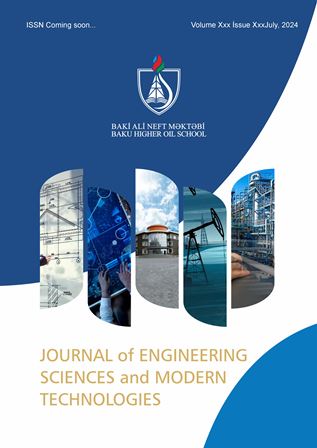ISSN: 3078-1760
E-ISSN: 3078-1965
About the Journal

The "Journal of Engineering Sciences and Modern Technologies" (JESMT) was founded in Baku Higher Oil School in 2024. The JESMT aims to provide a comprehensive platform for researchers, practitioners, and industry professionals to disseminate and discuss significant advancements and emerging trends in the fields of technology and engineering sciences. The journal covers a wide range of topics, including but not limited to:
- Information and Communication Technology (ICT): Innovations in software and hardware, network and communication systems, cybersecurity, artificial intelligence, machine learning, and data analytics.
- Engineering Sciences: Developments in civil, mechanical, electrical, chemical, and materials engineering, including novel methodologies, design, and applications.
- Emerging Technologies: Exploration of cutting-edge technologies such as nanotechnology, biotechnology, quantum computing, renewable energy systems, and autonomous systems.
- Interdisciplinary Research: Integration of technology and engineering with other disciplines such as healthcare, environmental sciences, and social sciences to address complex global challenges.
- Petrochemical direction: Emulsion and technology of applications, Enhanced Oil Recovery and applications technology, Catalysts and engineering, and Application of surfactants technology.
The journal accepts original research articles, review papers, case studies, and technical notes that contribute to the body of knowledge and practical applications in modern technology and engineering.
Aims and Scope
The primary aim of the "Journal of Engineering Sciences and Modern Technologies" is to foster innovation and excellence in the fields of technology and engineering by:
- Promoting Knowledge Sharing: Providing a platform for the exchange of ideas, research findings, and technological advancements among academics, researchers, and industry professionals.
- Encouraging Interdisciplinary Collaboration: Bridging the gap between different disciplines to encourage collaborative research that addresses complex problems and leads to holistic solutions.
- Supporting Emerging Researchers: Offering opportunities for early-career researchers and students to publish their work and gain visibility in the scientific community.
- Advancing Practical Applications: Highlighting research that has significant practical implications and can be translated into real-world solutions to benefit society.
- Maintaining High Standards of Excellence: Ensuring the publication of high-quality, peer-reviewed articles that adhere to rigorous scientific and ethical standards.
Through these aims, JEMST strives to be a leading journal that contributes to the advancement of technology and engineering sciences, fostering innovation, and supporting the development of sustainable solutions for contemporary challenges.


